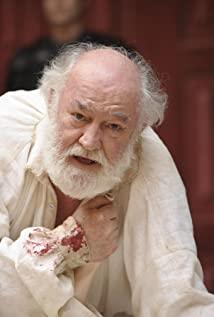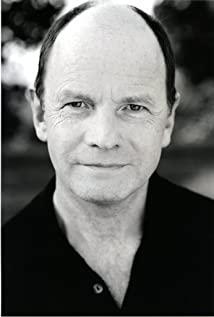A long time ago, I read "The Deadly Gas and the Fragrance of Flowers - A History of Smell" written by Alain Corbain, a professor at the University of Tours in France. In the book, he described the history of France as a history of indescribable stench, and regarded Paris in the 18th and 19th centuries as a filthy city in Europe. After reading it, the text is very easy to understand, but because of the different countries, I can't really understand it. Until later, I saw Suskind's "Perfume - A Murderer's Tale", and even today, it was brought to the screen by Tom Tykwer. Regarding the two art forms of a work, as an audience, I have no way to interfere, but I still believe that whether it is reading this book or watching this film, you need a sensitive nose.
"He is as tenacious as a resistant bacterium and as contented as a tick, which rests quietly on a tree and lives on the little drop of blood it acquired years ago" Grenouille lay in rotten In the rubbish heap of belly fish intestines; lying in the ruins of a nursery; struggling with anthrax and syphilitic herpes variant and late-stage purulent measles, dying and still looking silent and innocent. Grenouille in the book was born with a congenital deficiency, and his appearance was ugly and fierce. Because ugliness was hated by people, he always had a strong sense of revenge. The lack of smell on his body is a bit like the appearance of Schlemmer in Shamiso's writings after contracting with the devil and losing his shadow, which is indeed a flaw.
However, in the movie, I don't think Grenouille is ugly, especially the way he stares at the first red-haired girl who sells fruit with wide eyes, which is really charming. If you change the historical background and completely deviate from the limitations of the original work, maybe there will be an epic love story. However, the movie has to follow the original after all. But the description in the book that he has no body odor is not easy to express. It is impossible to get a few extras according to the script and point to him and say, "You have no smell." It can only be expressed through the rejection of other people's fear and dislike of Grenouille, but there are too many choices in this situation. I'm afraid people who haven't read the original book think that he is too smelly to avoid it. What~.
In the book, although Suskind also tried to lash out at Grenouille and used some ironic words, what I saw between the lines was more sympathy and appreciation. There is, however, no trace of this sympathy left in the portrayal of the minor characters. In his writings, the executioner's murderous appearance is revealed, and several other minor characters related to Grenouille are more or less gloomy and terrifying. Presumably the writers didn't like these characters, so most of them didn't die well.
At this point, Tom Tykwer has done nothing better than that: everyone related to the protagonist, whether his mother - the dirty old fisherwoman, or the nun who has lost her sense of smell, or even the perfume maker Shang Baldini... all died inexplicably after Grenouille's departure. Was it deliberately arranged or predestined? In short, the director's emphasis here must be based on his personal love for this character. While portraying Grenouille as an evil saint, it also melded into Tom's personal emotions.
From a creative point of view, neither Suskind nor Tom Tykwer used any unconventional modern techniques. The author seems to ignore the modernist way of writing, as if he has not read the works of Kafka or Joyce. It also completely abandoned that kind of inner monologue, and there is no flashback technique. Completely critical of realism. It came up that "in the eighteenth century, there was a man in France..." Then, most people understood: this work will be written according to the traditional realist narrative. The same is true of the movie, probably because of the fear that the original story is not strong enough, it used a little flashback at the beginning, that is, the scene where Grenouille was announced to suffer twelve sticks in prison. But there are several scenes interspersed in the film: when the Lola family moved out of the southern town, Grenouille searched through his nose, so the space changed suddenly, from the hill he stood on to the Lola family speeding on horseback, and even the wind blew Lola's The hat, a glimpse of her hurriedly turning back; and at the execution ground, infected by the smell of Grenouille's perfume, the onlookers jumped from initial anger to intoxicated ecstasy, stroking each other to remove their clothes, Grenouille was in On the execution platform, the handkerchief is waved like a saint's summoning... This surreal idea is surprising and has such a wide and long imagination space.
With despair of ideals, returning to the slums that stink as bad as when they were born, pouring perfume on them and letting crazy attracted people eat themselves with inexplicable love, Grenouille in the book is because of the failure to find and establish himself , the film's Grenouille is because of the desire and despair of love. Although his ending appears tragic, it is so romantic and heroic.
In the night on the Avenue de Roy, there is still silence. The people called the day when the murderer was executed "Liberation Day", but Grenouille brought his sensitive nose and unparalleled perfume, like a wounded flower, back to the original town where he was born but did not raise him, Free yourself in your own way and bloom with your own nutrients.
German writers, French stories, English dialogues... In the realm of smells, the fragrance is lingering, and the flowers are in full bloom.
View more about Perfume: The Story of a Murderer reviews











